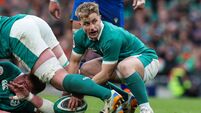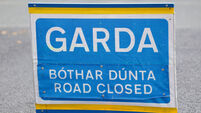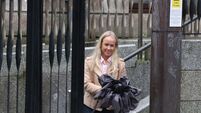Quirke ruling could have wider impact, say legal experts

Patrick Quirke in 2019 during the murder trial. Picture Colin Keegan, Collins Dublin
A Supreme Court ruling that some evidence which helped convict Patrick Quirke of the murder of a DJ known as 'Mr Moonlight' was unlawfully obtained could cause difficulties in other cases, say legal experts.
The declaration by the Supreme Court on Monday that the seizure of a computer at Quirke’s home, as part of investigations into Bobby Ryan’s 2011 murder was unlawful is a significant development in his appeal against his conviction.











